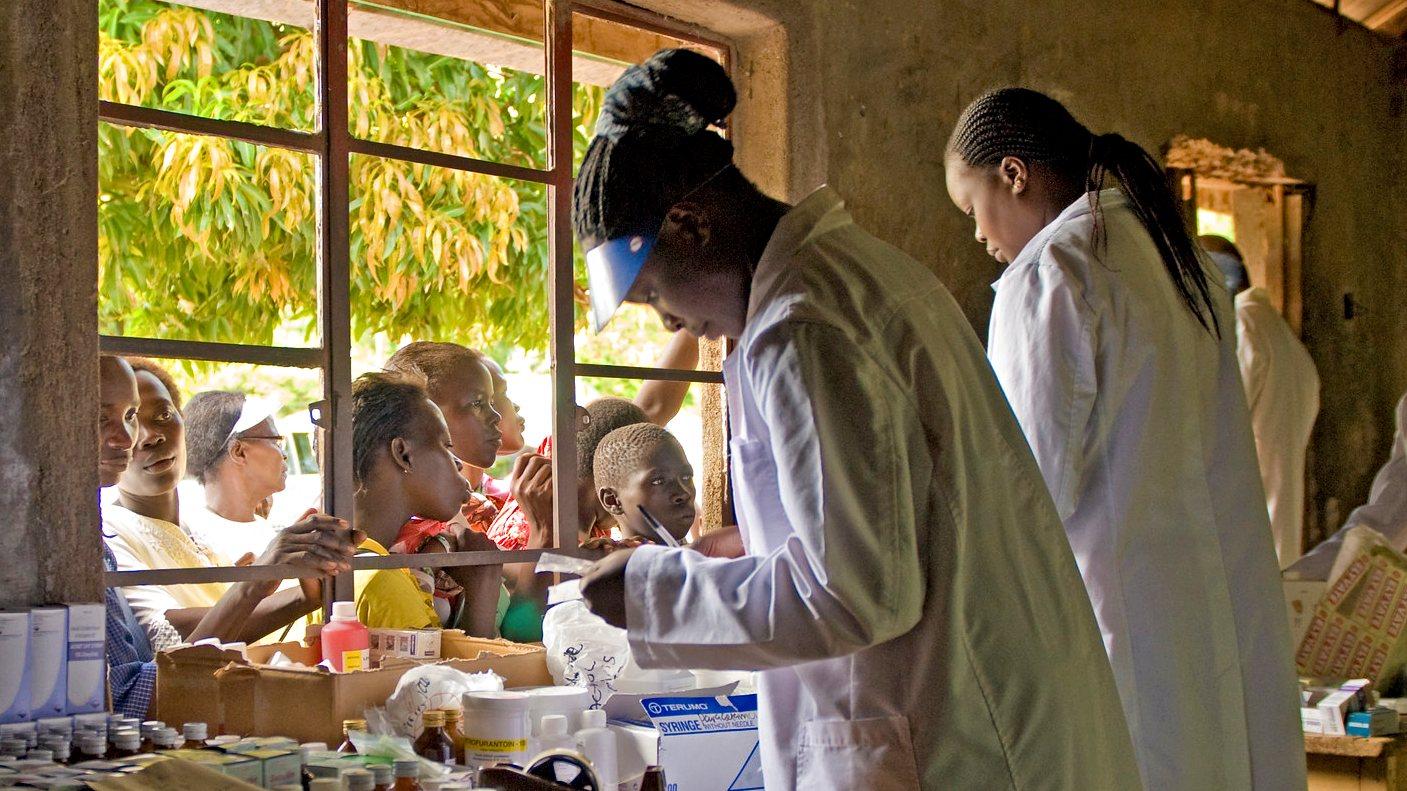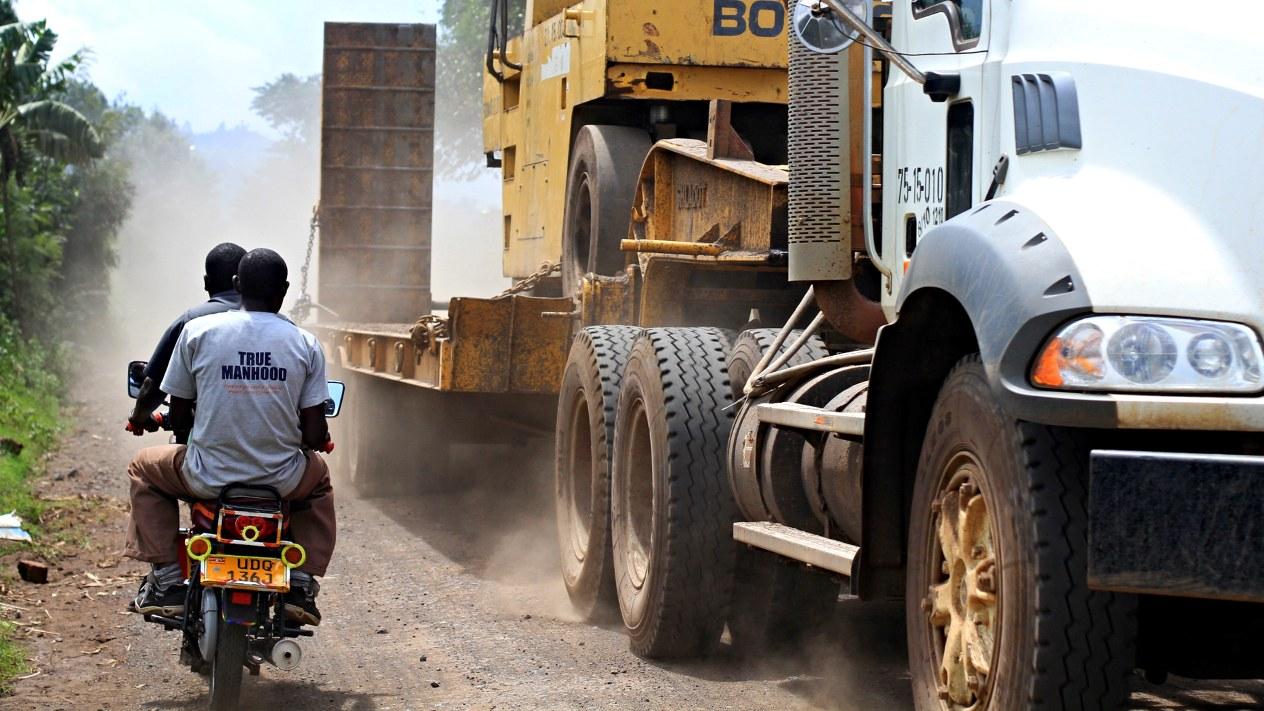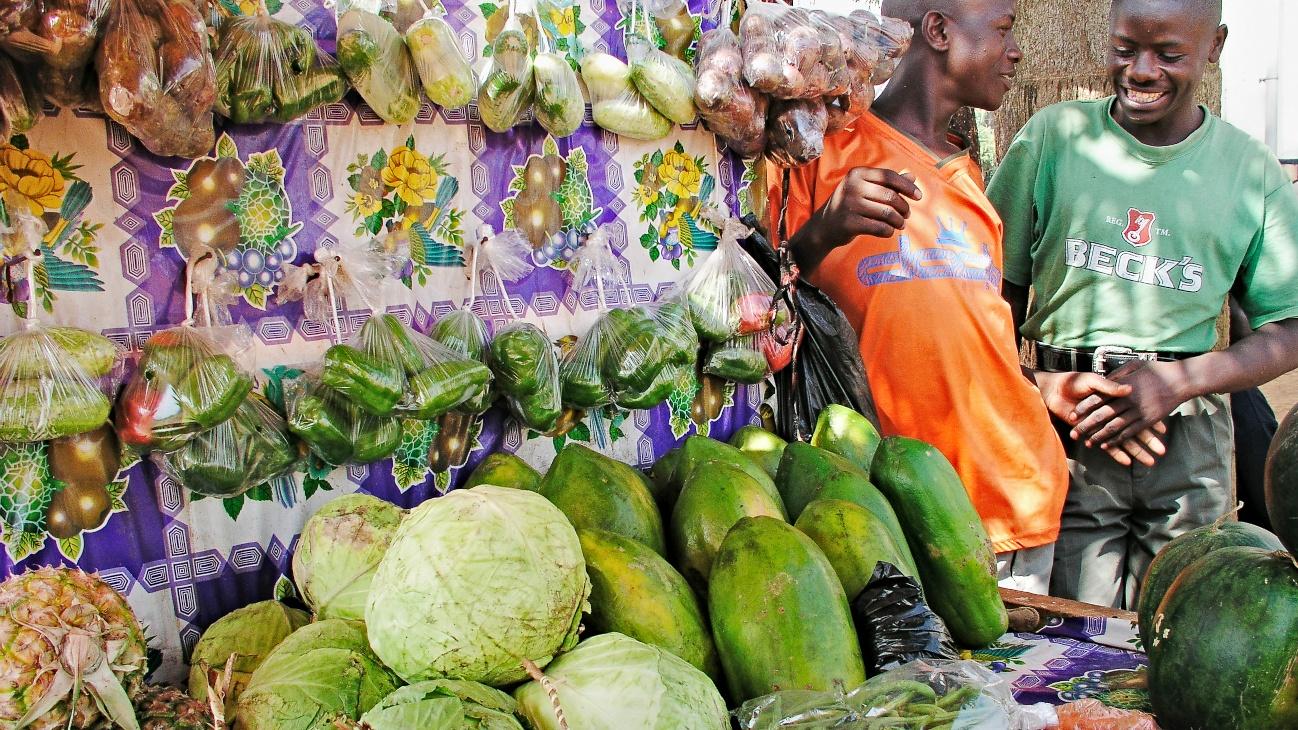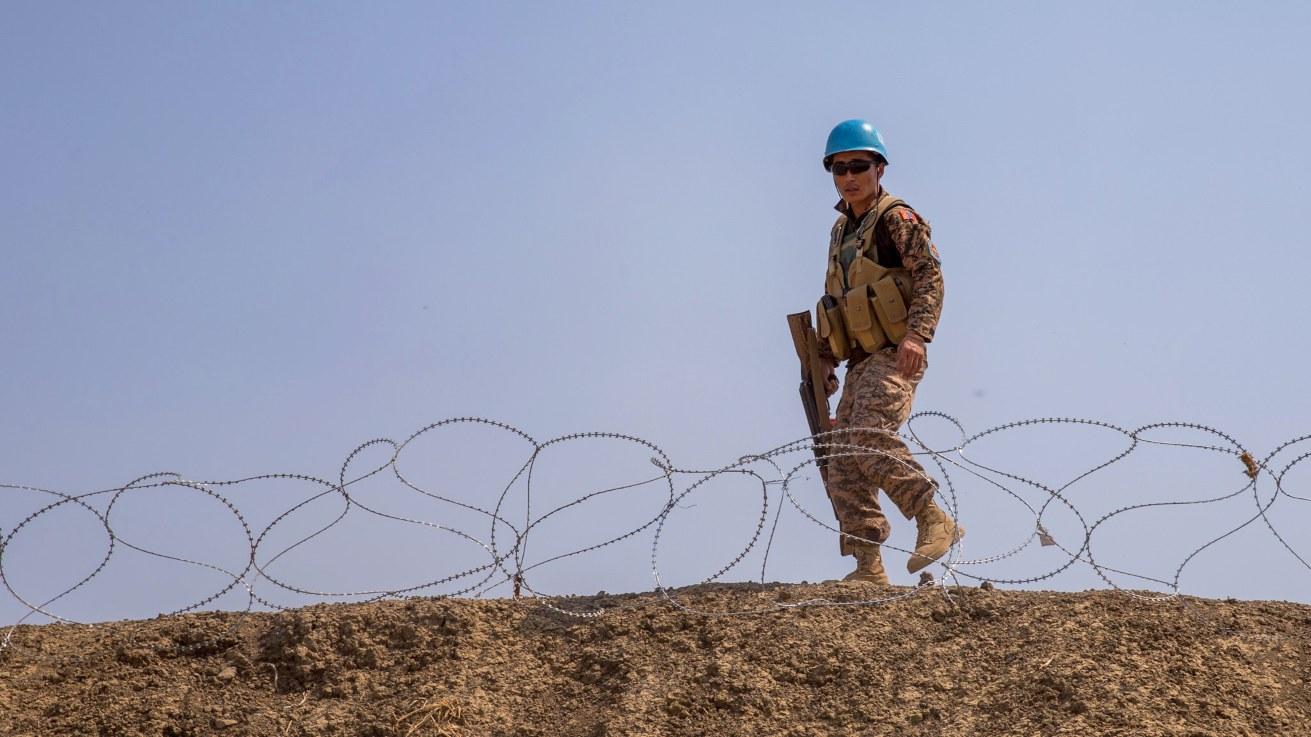As government responses to COVID-19 ban citizens from distributing food, questions in Uganda about who supplies food relief has caused tensions between political parties and between the executive and parliament. With lockdown measures expected to have large impacts on national poverty, an emerging consensus considers food distribution to be instrumentalised by the government ahead of upcoming elections.
This blog is part of the series Shifting Spaces, an emerging timeline of COVID-19 responses from Kenya, Malawi, Tanzania and Uganda.
By June 2020 Uganda’s long-serving President Yoweri Museveni had made no fewer than 16 live Presidential addresses on COVID-19 in less than three months. While some public policy experts have lauded this ‘strong’ leadership, many Ugandans increasingly question the politics behind COVID-19 government measures.
Museveni’s televised addresses run for hours and draw millions of Ugandans, many of whom have experienced no president other than him. During these briefings, the COVID-era Museveni morphs into a caring grandpa who tenderly addresses his audience as bazzukulu, the Luganda word for grandchildren. Among those often flanking the president is Dr Jane Ruth Aceng, the Minister of Health, a medical doctor whose handling of the pandemic has earned her plaudits from across the political divide. Her attendance adds validity to presidential directives, by providing facts and figures relating to the virus.
Ugandans increasingly question the underlying meaning of these frequent briefings. Many link his intents to a reelection strategy. Political analyst Andrew Mwenda believes a two-and-a-half-minute video showing Museveni, 75, exercising in his office was a campaign stunt. ‘The real message is; “I am still fit to rule!”’ said Mwenda. Accused of rigging elections in 1996, 2001, 2006, 2011 and 2016, many question whether Museveni is using a public health platform to enhance his political capital. Has COVID-19 fed into the President’s long-term political ambitions of clinging to power?
Feeding these questions, Museveni has already cast doubts about the prospect of holding elections next year, as scheduled by the electoral body. Longtime presidential aspirant Kizza Besigye and opposition MP Ibrahim Semujju Nganda accuse the president of using the coronavirus to increase his political visibility for an electoral advantage in 2021. Government spokesperson Ofwono Opondo has rubbished such allegations against the president, saying Museveni is leading the country out of the current crisis, just like other presidents across the world.
The politics of food relief
Politicking has played out in food relief. In the early days of the global pandemic, Museveni warned that individuals distributing food would be charged with attempted murder. He argued that such distribution efforts would attract crowds, where the virus could spread.
For his critics, he appeared to be exploiting lockdown measures to gag political freedoms. Opposition politicians such as Robert Kyagulanyi, aka Bobi Wine, and Besigye regard this move as ‘exclusionist and partisan’. Police arrested Mityana Municipality MP Francis Zaake for ‘distributing food to his starving constituents’. He was hospitalised after being tortured under police custody. While an independent MP, Zaake often sides with the opposition, particularly the Wine-led People Power.
Although Museveni recently mocked (in passing) the police for arresting opposition politicians for giving out food while letting members of the ruling National Resistance Movement (NRM) do so unconstrained, he is yet to rein in security forces who mete out brutality to his opponents, or to properly condemn torture.
For context, is not uncommon for Uganda’s politicians to gain support through ‘giving’ food, money, clothes and animals, in the hope of recouping through re-election. In exploring the cost of politics in Uganda, political scientist Dr Frederick Golooba-Mutebi found out that ‘voters still see the act of voting for someone as opening the way for him or her to go and make money or eat’. COVID-19 has perfectly matched the interests of politicians (to give) and voters (to receive).
The giving of COVID-19 relief items by any party must be channeled through the infrastructure set by the president – the Coronavirus taskforces. Wine’s political movement People Power, has had to give food aid through the taskforce. In other cases, opposition support has been rejected, including Besigye’s offer to provide a fleet of ambulances for being ‘uncoordinated’. But Besigye, a former minister in Museveni’s government, says he will never donate to a government he does not trust: ‘What you are seeing now as giving must be questioned. A lot of it is some form of corruption, they are buying favour,’ he said.
Fractures between the Executive and MPs
COVID-19 is not the first time Ugandan officials have been accused of plundering the state and taxpayers money during a crisis. Examples include the mismanagement of money meant for immunisation, theft of money for the recovery of Northern Uganda after 20 years of civil war, and the exaggeration of refugee numbers. COVID-19 is no exception. On 8 April MPs allocated themselves 20m Ugandans shillings (about $5,300 each, totaling Shs10 billion) from a Shs923b supplementary budget designated to COVID-19. Only 294b of the total budget went towards the government’s multi-sectoral response. Much of the remaining money was classified defence expenditure. The president gave the MPs a dressing-down for awarding themselves the money, regarding it ’morally reprehensible’ under the current circumstances. While the Speaker of Parliament Rebecca Kadaga argued that MPs needed the money for their own COVID-19 response in their constituencies, Museveni regarded it illegal, and a usurpation of the executive’s powers. Parliament dispatched the money to MPs before Museveni assented to the bill.
Museveni then advised MPs to take the money to the coronavirus taskforces in their respective districts. Shortly afterwards, on 29 April 2020, the High Court in Kampala ordered the money to be reverted to either the Parliamentary Commission account or the National COVID-19 taskforce or the District COVID-19 taskforces. Was the court order a coincidence? Kadaga maintains that, in allocating the monies to MPs, the legislature did not break any laws, reasoning that ‘parliament is under attack from the judiciary and the executive’ over the expenditure. In a press conference on 30 April, she ordered the MPs to disregard the instructions of the president and the court and only obey her own.
Whereas many Ugandans see this as a rare fight between the executive and the parliament – arms of government both controlled by NRM – political commentators consider it the pinnacle of politicking ahead of the 2021 elections. Mwambutysa Ndebesa, professor of political science at Makerere University, told the Independent news magazine that Kadaga’s actions were aimed at ‘winning the hearts of the MPs so that she is elected back as the speaker’. The Shs20m to each MP, Ndebesa said, was therefore an incentive for the legislators to get her reelected. ‘If MPs were really interested in service delivery, why were they going ahead to write names on the bags of food? They are actually involved in campaigns so that they are elected again and subsequently elect Kadaga as speaker.’ It is fair to say that Kadaga was trying to give MPs what to give to their voters, with the view to being given next year’s speaker elections.
Some MPs, especially those in the NRM, have since either returned the money to the parliamentary commission or taken it to the COVID-19 taskforces. Many have not. Museveni has directed the Auditor General to audit those MPs’ expenditure. It is also reported that he has been secretly meeting small groups of NRM MPs to convince them to take his side in the matter. After these meetings, a group of NRM MPs tabled a motion in parliament praising Museveni for his exemplary leadership in the COVID-19 response. Each MP who supported the motion reportedly received Shs40m from the party. The party, however, denies this payment.
By ingeniously electing to reprimand MPs for taking ‘public money’ while announcing that he would take a 50% pay cut in an address broadcast nationwide, Museveni looks to have succeeded in painting legislators as the villains and himself the hero in this crisis. In aptly summarising Museveni’s performance, Ugandan journalist Daniel Kalinaki noted:
‘the real genius is to take Shs10b out of a supplementary budget of about a trillion shillings and make 40 million Ugandans keep their eyes glued to that while the much larger sum floats downstream in broad daylight.’
Spaces of provision?
Museveni has also encouraged MPs to join the taskforces in their districts. At first this rallying call seemed to take COVID-19 to the grassroots. Yet Museveni’s political appointees head the taskforces, and the district taskforces are headed by Resident District Commissioners (RDCs), directly answerable to the President’s office. For many Ugandans, Museveni is similarly dictating relief efforts at the district level. Political commentator, Chrispin Kaheru, the former coordinator of Citizen Coalition for Electoral Democracy in Uganda, acknowledges in local media that ‘the incumbents were in the driving wheel of the taskforce at the district and national level, which gives them an advantage under the circumstances.’ Kaheru notes that it will take significant creativity for the opposition to compete under such circumstances.
It is improbable that Museveni’s decision to distribute food to poor people only in Kampala and its surroundings was a pure act of humanitarian prioritisation. Kampala Lord Mayor Erias Lukwago said despite it being ‘categorically stated that the entire exercise [of food distribution] should not be politicized,’ weeks later, ‘It is completely politicized by deploying ministers to be in charge of city divisions as districts.’ Kampala and its surroundings are an opposition stronghold, and they account for some of Museveni’s biggest election losses. At every election cycle since the launch of multiparty politics in 1996, the NRM has distributed cash, food and other gifts. The party’s election budget grows by a colossal 60% at every cycle, according to estimates in a survey conducted by the Alliance for Campaign Finance Monitoring (ACFIM), a loose coalition of CSO activists (spending which dwarfs that of opposition parties).
In 2016, for example, Museveni spent $231m (Shs773b) while former Prime Minister Amama Mbabazi used $19.9m (Shs66b), Besigye $4.5m (Shs15b), and the rest of the five candidates each spent less than $0.5m. NRM spending is most pronounced in urban centres (where it is often accompanied by other coercive tactics) to dislodge opposition majorities. Since rallies cannot be held for the foreseeable future, food handouts provide an effective tool.
Sufficiently aware of the threat this poses to the popularity of the opposition and the incumbency of many opposition candidates in municipal constituencies, Besigye wants food distribution to be done by ‘politically-elected leaders’ on the grounds that they ‘would have done it better because they know their residents’. But Museveni maintains that such leaders would attract crowds, and spread COVID-19. His ministers lead food distribution in city suburbs.
Museveni argues that Kampala residents need food aid because they have been most affected by the lockdown. Yet the facts do not support Museveni’s argument. Rural areas actually need more support than those receiving the president’s food relief, accounting for 86% of national poverty, according to the 2016/17 national household survey conducted by the Uganda Bureau of Statistics (UBOS). Karamoja, Teso and Acholi sub-regions register some of the highest food insecurity in Uganda, according to the United Nations Foods and Agriculture Organisation (FAO). Museveni has a different criterion, though: ‘If you were poor before the lockdown, you’ll be poor after the lockdown.’
That food distribution is political rather than humanitarian is a rising consensus, and that government interventions are probably being instrumentalised for campaigning for the 2021 elections.
It is difficult to project accurately the long-terms effects COVID-19 on the economy of Uganda’s cities and the rest of the country, but the current experiences of people indicate that the poverty and distributional effects of the lockdown will be significant. Considering how national politics feeds into experiences within districts and localities is critical when charting the pandemic’s unfolding dynamics.
This blog is part of the Shifting Spaces, an emerging timeline of insights from Kenya, Malawi, Tanzania and Uganda.
Photo: Presidential Palace in Kampala, Uganda January 27, 2017. IMF Staff Photograph: Stephen Jaffe. Licensed under creative commons.





